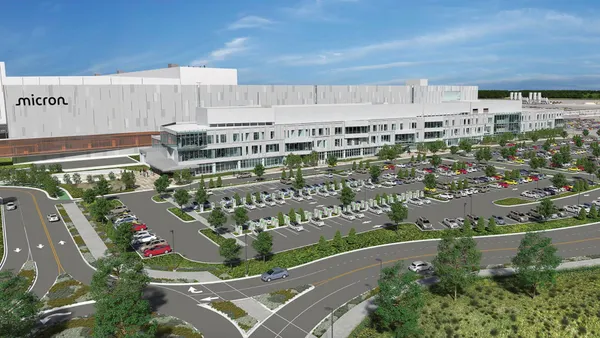Dive Brief:
- Bechtel has renewed its management services contract for Saudi Arabia's Jubail city project — the largest industrial development in the world — for another five years, Bechtel reported in a press release.
- The Jubail development is more than 250,000 acres, employs 140,000 workers and includes petrochemical and other industrial plants, a harbor and port, its own highway system and full telecommunications capabilities.
- Bechtel has been involved with the Jubail project since the 1970s, when the Saudis began planning and building the "sand-up" city. Bechtel also renewed its contract for a second, smaller but similar city, Ras al Khair.
Dive Insight:
According to Bechtel, its next five years at Jubail will center around residential and educational projects, including a "greenfield" university, which will be able to accommodate 18,000 students. Bechtel will also perform work on roads, bridges, medical facilities and infrastructure plants.
Bechtel's business relationship with Saudi Arabia is more than 70 years old, and the company has been involved in the construction of the country's King Fahd and King Khalid airports, as well as the Riyadh Metro.
The Jubail project is evidence that Bechtel is thriving in an atmosphere of declining international construction spending. According to the Engineering News-Record, this year's Top 400 U.S. contractors' revenues increased 9.5% to $294.35 billion, while income from foreign-based projects dropped 21.1% to $49.79 billion. However, Brendan Bechtel — who will take over as Bechtel CEO in September — said there are still openings in the international market for construction companies that are "smart and disciplined."
Even before the CEO succession announcement, Brendan Bechtel was making waves in the building community with his opinions on infrastructure and private-public partnerships (P3). Late last year, he wrote an op-ed piece for USA Today that took the U.S. Congress to task over America's crumbling roads, highways and bridges. He urged lawmakers to make infrastructure a priority and to take advantage of the private sector's expertise and access to capital by utilizing the P3 structure.











